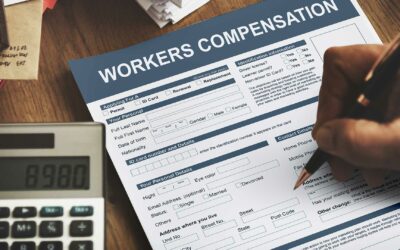For the various kinds of personal injury that a person can experience, oftentimes the way it occurs is through the negligence of a guilty party. It can be a distracted driver, a careless surgeon, or even a construction company that fails to create a safe means for its workers to walk from one point to another on-site—all of these are instances of negligence coming into play that can lead to terrible injury or even death. That is another form of personal injury: the loss of a loved one due to the negligence of others.
But it takes more than just knowing that the guilty party is responsible. In order to file for a personal injury lawsuit, you must be able to prove the negligence of that guilty party, and that requires a process.
How to Prove a Negligent Party Liable
To prove that a negligent party was at fault for your injuries, you’ll need to provide proof that satisfies the requirements of four elements: Duty, Breach, Causation, and Damages. Here’s a brief look at what each of these elements involve:
-
Duty
You need to prove that the defendant had a legal duty towards you within the circumstances of the situation in which your injuries occurred.Before negligence can be proven, your first step would be to prove that the defendant had a legal duty towards you, a legal obligation to provide you with something or to meet a certain level of quality or performance that is expected of them that can possibly affect you. One example includes the legal expectation that all drivers obey road rules such as not driving while intoxicated and obeying all speed rules. Another example is a doctor’s duty to provide the best care possible to their patients and meet the quality of care expectations that are set for all hospitals and medical professionals.
-
Breach
This requires you to prove that the defendant had done something to breach that legal duty. It can also involve them not doing something, which led to them breaching that duty.When someone breaches their duty, it means their negligent actions or inactions have caused them to violate the expectations placed by that legal duty. One example may be a doctor whose choice to not perform proper diagnosis testing eventually leads to a patient suffering a second heart attack and dying. Another example may be a driver, who knows well not to drive while intoxicated, continues to drive after having one too many drinks with their friends.
-
Causation
This requires that you prove that those breaching actions or their lack of action is what caused you the injury you’ve suffered.This element involves proving that the defendant was, in fact, the cause of your damages through their breach of duty. This particular element plays a big part in establishing fault because of how it helps eliminate two possible concerns: Pure Chance and False Accusation.
Proving causation can help make sure that no one is found guilty for damage that they might not have had any control over. Some examples may be random acts of nature like a freak storm or something even more random like a meteorite—if the injury caused was totally unpredictable and couldn’t have been foreseen in any sensible manner, the defendant might not be held responsible.
There is also false accusation that the element of Causation helps eliminate. Proof must be provided to show that the defendant did something or chose not to do something that directly resulted in you getting injured. For example, in a car accident, the court would want only the driver that actually struck you to be held responsible, not the driver that was two blocks away but was driving drunk. Even if someone else in the area was being negligent, unless that negligence can be proven to be the direct cause of your injuries, you can’t hold them responsible.
-
Damages
Finally, this involves the deciding of compensation to the injured party. In personal injury cases, this usually involves money for medical expenses and repairs for any property damage.This last element is the stage when the court determines the compensation for the injury party and what they need to take care of their injuries and damages. Usually compensation takes for the form of money for medical treatments, property damage repairs, vehicle repairs, and even recovery from emotional distress.
Be Compensated for Your Personal Injuries, TopResearched Can Help You Find the Right Lawyer
It wasn’t right that someone’s negligent or careless actions caused you injury. If you’ve been hurt and are sinking in medical costs and lost wages, there’s a chance that a personal injury lawyer can help you get the compensation you need to return to as normal a life as possible. But there are plenty of law firms out there and no two lawyers are alike. With the help of TopResearched, you can have a list of the absolute best personal injury lawyers near you without the rest to clutter your screen. Get the right legal representation quick in just a few clicks on TopResearched!








